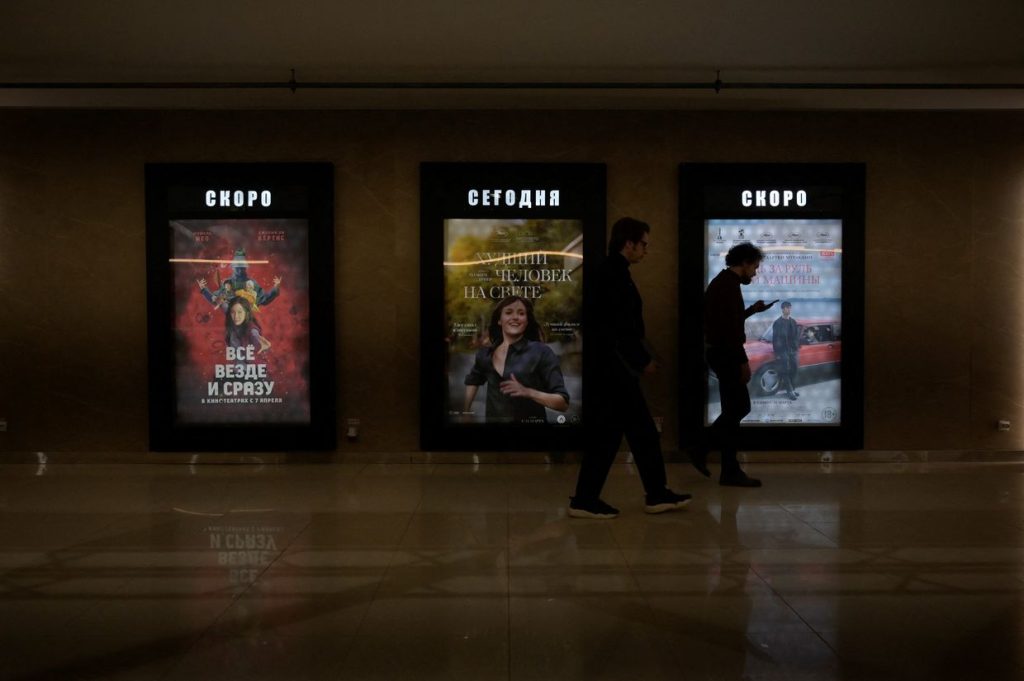Russian state television blames Western democracies for all of Russia’s problems, especially the U.S., yet there remains a high demand for U.S.-made products within Russia. After Hollywood studios stopped selling their films to Russia due to the invasion of Ukraine, Russian movie theaters continued to show pirated U.S.-made films from online platforms. Instead of cracking down on piracy, the Russian government is considering legalizing theft, with no way for rights owners to prevent it. Fast-food chains also closed in Russia after the invasion, but companies like McDonald’s continue to operate as Russians still enjoy American burgers and sandwiches.
Russia has long been a pirate haven, with illegal file-sharing websites being popular. Regulators in the 2010s began to crack down on these sites, but with the exit of Western production companies, the government allowed piracy to cover the remaining demand for Western films. Some Russian movie theaters have been showing pirated films from big Hollywood studios like Paramount Pictures and Walt Disney Studios. Despite the violation of copyright laws, the Russian government has not taken action against these theaters. In fact, they have proposed legalizing the theft of foreign movies, which has been met with opposition from various ministries in Russia. The government’s support for piracy has drawn criticism from experts, who view it as evidence of organized crime within the state.
While some Western film studios have stopped working in Russia, others continue their operations there. A24, Metro-Goldwyn-Mayer Studios, Lionsgate, and other studios have released their films legally in Russia. However, lawyers agree that Russian movie theaters showing Western films without permission are violating national and international copyright laws. Despite the legal hurdles, potential plaintiffs could use international arbitration procedures or U.S. courts to protect their copyrights. However, enforcing such decisions may prove challenging, especially if Russian theater chains have no assets abroad. Some lawyers argue that the Russian government should be held responsible for not preventing piracy or even supporting it, but seizing government assets in copyright cases would be extremely difficult.
The March 2023 presidential election in Russia was described as the most rigged in the country’s modern history, with evidence suggesting significant voter fraud. Russian state violence has been on full display, with torture of suspects involved in a terrorist attack in Moscow. The aggressive policies of the Russian government, including support for piracy and disregard for copyright laws, have raised concerns among legal experts. While some Western film studios have continued their cooperation with Russia, the issue of copyright infringement of U.S. films by Russian state actors has highlighted the challenges of enforcing legal decisions and holding the Russian government accountable. Despite the legal complexities and political implications, experts emphasize the need for more courts to address this issue and establish new precedents in order to protect intellectual property rights in Russia.


